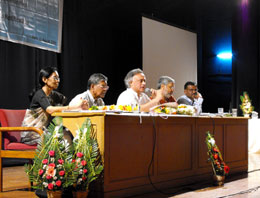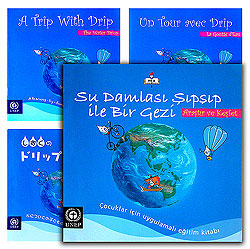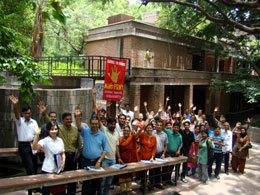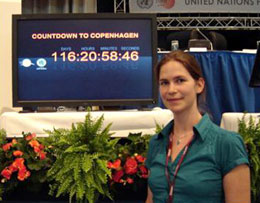Public Consultation on Coastal Regulation Zone Notification
The second round of consultations to elicit views and recommendations on the Coastal Regulation Zone (CRZ) Notification was initiated in Mumbai on 12 August, 2009 . This was the first of ten consultations planned in the coastal states of India . 800 people from all walks of life including fishermen, urban middle class people living in the CRZ, and NGOs were present. There were also coastal community representatives from Gujarat , Goa , Kerala and Tamil Nadu. CEE Goa facilitated this meeting with the help of Srushtigyan , an NGO in Mumbai, and CEE Central.
 |
The consul;atation was chaired by Mr. Jairam Ramesh, Hon'ble minister of Environment and Forests, Government of India. Mr. Kartikeya Sarabhai represented CEE on the dias. |
|
|
This is a case of how an effective facilitation of a public consultation process can lead to policy changes. To retrace the steps is to understand the genesis of the process. Realizing the ineffective implementation of CRZ 1991, Ministry of Environment and Forests (MoEF) proposed Coastal Management Zone (CMZ) in 2008 which also marked a major paradigm shift from regulation to management in the coastal history.
Following the notification (CMZ 2008), MoEF commissioned CEE to hold 6 public consultations to collect the viewpoints of the coastal communities. CEE facilitated consultations in 35 coastal locations and reported the majority viewpoints of the coastal communities, which were not in favour of the notification. Following this, Parliamentary Committee on Science & Technology, Environment & Forests studied the reports of CEE and others and recommended not to implement CMZ, 2008. An Expert Committee constituted by MoEF in June 2009, also studied these reports and recommended that the CMZ 08 notification should be allowed to lapse and Coastal Regulation Zone 1991 should be strengthened.
Encouraged by the first round of consultation, MoEF decided to gather public viewpoints on the Expert Committee Recommendations on CRZ 1991 through a second round of consultations to bring improvements in CRZ. CEE was chosen to facilitate these public meetings. With the success of the first consultation of this round, CEE looks forward to continuing the meaningful and participatory process.
Details are available at www.ceeindia.org
|
|
 |
Drip Goes to Turkey
A Trip With Drip: The Water Drop has got its fourth language version with the book being published in Turkish. The Turkish version titled Su Damlasi Sipsip ile Bir Gezi was recently published by publishing house Caretta. 10,000 copies of the book have been distributed free of cost to selected primary schools across Turkey
 |
In addition to the Turkish version the book was also produced in English, French and Japanese. |
|
|
The publishers shared that they have got very good feedback; the teachers liked the style of the book and found it easy to read, with much information and hands-on activity ideas. They expressed the need for more such books on environmental themes. The students also loved the book. As the publishers said “our aim was to penetrate in their houses as well, and I am sure through the book, all the families have discussed about saving water!”
The learning-by-doing workbook on water for children was developed and produced by CEE in 2005, as part of a project of UNEP. Also developed was an interactive CD, as well as a web-version of A Trip With Drip. The package was launched at the Children's World Summit for the Environment at Aichi in Japan in July 2005, where Mamata Pandya, Sr. Programme Director, Instructional Design, CEE also co-facilitated a workshop with children on the theme of water. The book has continued to be popular, and the first print run has been exhausted.
The web-version can be accessed from www.kidsrgreen.org |
|
 |
Volunteering for Change
“There is always one moment in childhood when the door opens and lets the future in.”
 |
The orientation session familiarized the volunteers to the “Joyful Learning” approach of CEE and demonstrated certain activities from each of the modules. |
|
|
The Volunteer Orientation Programme of the ‘Hands for Change-Teach India Campaign', a joint initiative of CEE and Times of India, which aims at educating the underprivileged children with the help of volunteers was held on Sunday, 9 August 2009.  CEE will be working with about 230 volunteers in around 70 Centres in 23 slum localities of Ahmedabad. The Campaign focuses on the theme ‘Myself and My Surroundings' and aims to teach functional English and numeric skills to the children through a series of modules developed to guide the volunteers through the 12 weeks. Aiming to make learning a joyful experience for these children, the module consists of 11 themes which have numerous games and activities which will make the session more interactive. |
|
 |
Countdown to Copenhagen – Stopover in Bonn
The clock is ticking, the UNFCCC Copenhagen meeting (COP 15) in December is getting closer and the delegates' agenda is more than packed. The third UN negotiation round this year in Bonn from 10-14 August 2009 gathered about 2000 delegates and observers who continued the negotiation marathon on the topics of (i) a shared vision including the overall objective of avoiding dangerous climate change; (ii) adaptation to manage the unavoidable effects; (iii) mitigation to avoid the unmanageable; (iv) technology transfer for an energy revolution and leapfrogging; and (v) finance mechanisms with scale, source and institutions for funding the various planned activities. When this Bonn meeting ended, only 113 days were left for the Copenhagen meeting which hopes to acheive an ambitious agreement amongst all 192 parties on these issues. CEE keeps observing and interacting!
 |
Rixa Schwarz, CEE Germany , at the UNFCCC negotiations in Bonn with the countdown clock |
|
|
|
|
|
 |
Title
CEE was honored to welcome Dr Kapila Vatsayana at Ahmedabad campus on 13 August, 2009 . This was a special occasion for CEE as this visit coincided with CEE completing 25 years this month. Dr. Vatsyayana, had chaired the Expert Committee that visited Nehru Foundation for Development in 1984 to evaluate the proposal submitted to set up CEE. She was then the Additional Secretary, Department of Culture, Government of India.
Dr. Vatsyayana interacted with the CEE family and was happy to learn about the diverse and multiple activity areas of the organisation. She gently reminded us all of the threat that planet earth is facing and cautioned against repeating some of the terrible mistakes the human race has made in the last 100 years. She urged that humans need to put aside avarice and ego, and adopt the humility to be truly a part of nature, not its rulers. |
|
 |
Planning Ahead in Partnership
CEE and Arcelor Mittal have signed an agreement in September 2008 to partner for 3 years in facilitating and implementing Environmental Awareness Programmes, including climate change education in schools in India . The Pick right Campaign - a climate change education campaign across 2,00,000 schools of India . This marked the first phase of the partnership.
Mr. Vijay Bhatnagar, CEO, Arcelor Mittal, India and China visited CEE on 11 August, 2009 . He discussed with the Director and the project team, the conclusion of first phase of the project and the way forward for the second phase. While the first phase involved climate change education in schools, it was discussed that the second phase would involve extending the programme to other stakeholders also. Mr Bhatnagar interacted with CEE staff to discuss other climate change education initiatives being taken by the Centre.
|
|
 |
Women Entrepreneurs Expand their Horizons
Women entrepreneurs from Gram Nidhi Project from Jasdan, Gujarat , participated in SARAS Indian International Fair from 26 July to 6 August. The fair was organized by District Rural Development Agency, Chamba, Himachal Pradesh. CEE's Self Help Groups from Gundala project villages were selected from Gujarat to participate in the fair. The main objective of the fair was to provide the platform/market for rural artisans and entrepreneurs. The women entrepreneurs faced various challenges including language, weather, and consumer behaviour. They took the opportunity to learn from each other, and also got exposure to other entrepreneurial opportunities such as organic soap making, bucket from maize ear leaves, organic vegetable farming, mushroom unit, agro-processing, etc. The overall experience boosted their confidence to market their products better.
 |
Herbal tea and oxidized articles and jewelry were some of the major attractions for the visitors to the Gram Nidhi stall. |
|
|
|
|
 |
ESD Handbook in Hindi: Disha
CEE North has trans-adapted ‘Disha' the handbook for National Bal Bhavans and National Green Corps(NGC) eco-club facilitators into Hindi. The booklet is titled Kar D ikhaein Kuch Aisa Sha mil Kar Sabhi Ko (Let's do and show, with everyone's participation). This handbook was developed in English in 2008 with the aim to help children gather information, analyze environmental issues within their immediate context, determine action, and practice it. In a sense, the aim of this book is to provide the necessary orientation towards Education for Su st ainable Development.
The Hindi Disha handbook was part of the package given to teachers during the 2-day training programmes organised in 5 districts of Uttar Pradesh. CEE North has developed a year long st rategy for NGC schools where 10-15 schools have been selected from each of the 5 districts - Bareilly , Barabanki, Raebareilly, Lucknow and Sitapur. CEE would be working with each school closely to guide the teachers in conducting these activities.
|
|
 |
SGP
Mr Hem Pande, Global Environment Facility Chair and Joint Secretary, Ministry of Environment and Forests, Government of India, visited the stall set up by Sainio ka Sangthan, a Small Grants Programme partner, and interacted with the representatives. This was part of the International Youth Conference of Sutainable Lifestyles: Consumption and Climate Change held from 3 -7 August at Kamala Nehru College , Delhi . Mr Pande addressed the students and the delegates on the issues and stressed that ‘sustainable consumption' does not automatically translate into ‘less consumption' but rather to more efficient, better informed and less resource intensive consumption. He also said that that the conference would provide an opportunity, to share knowledge and mapping values, in promoting sustainable consumption which will later involve civil society, students, institutions, consumers and government.
|
|
 |
Saral Shiksha – Making Education Simpler
CEE has signed an MoU with UNICEF Gujarat for a project to develop an interactive multimedia learning pack. In many government primary schools, the number of classes or sections is often greater than the number of teachers; for instance, 3 teachers for a school with classes from 1 to 7. This makes situation hard for both teachers and the students. Under Saral Shiksha project, CDs comprising animated, interactive software that will help students learn hard spots from Science and Mathematics textbooks of classes 5 to 7 would be developed.
|
|
 |
|
|

